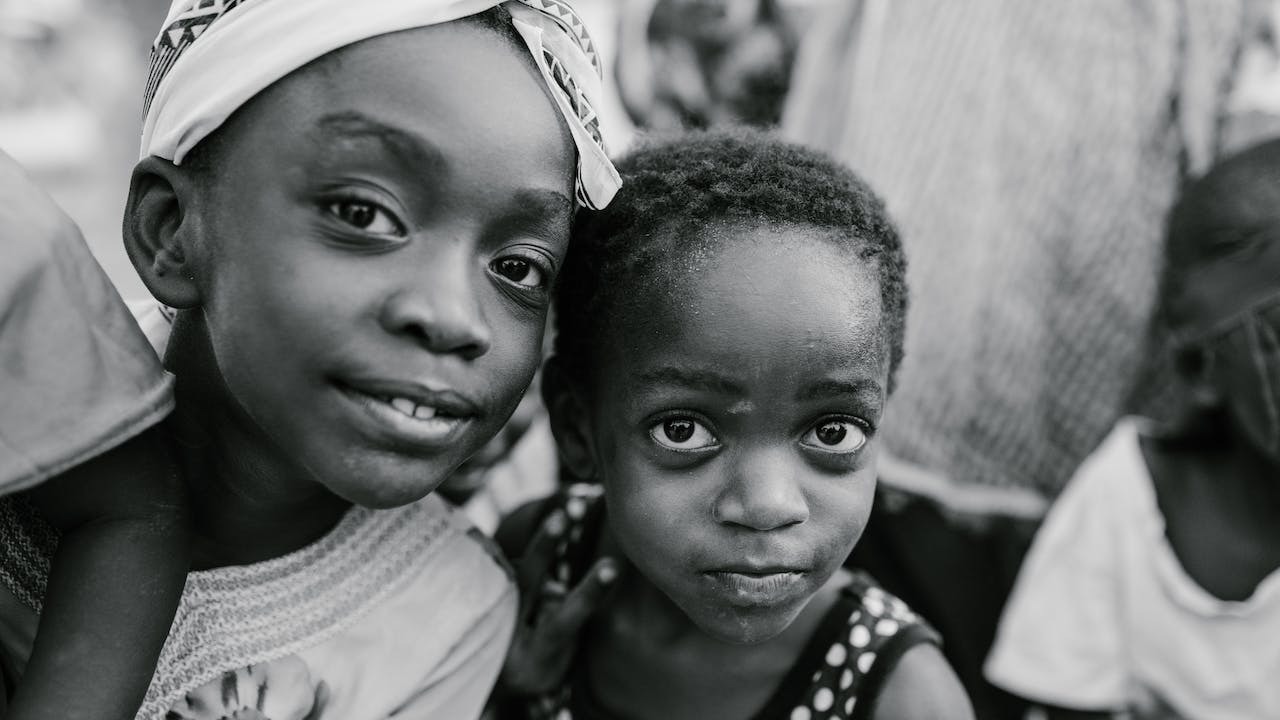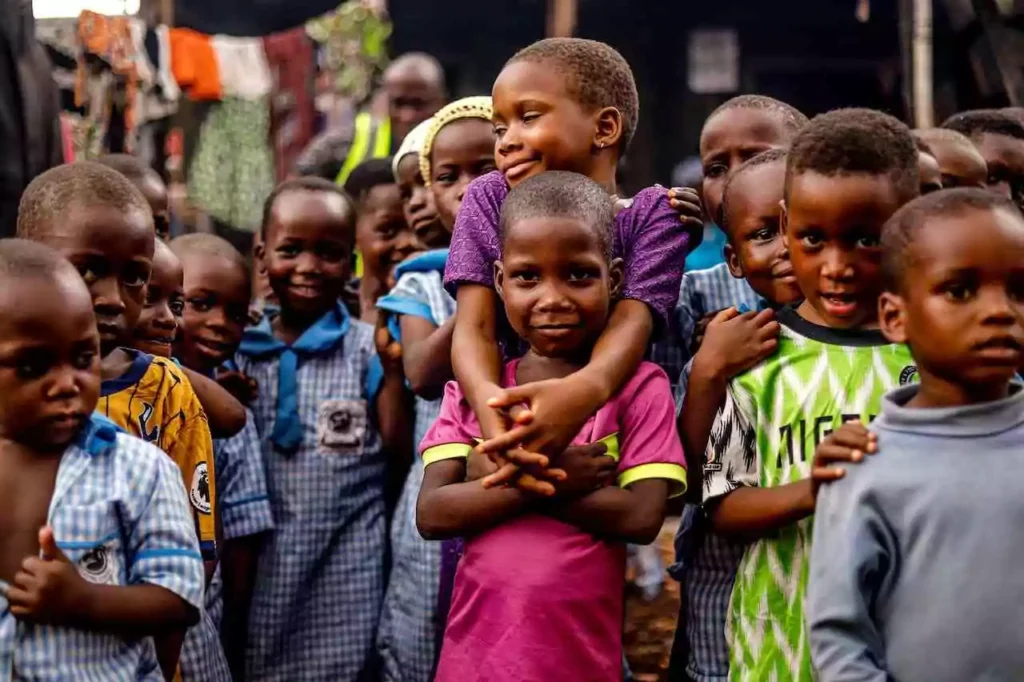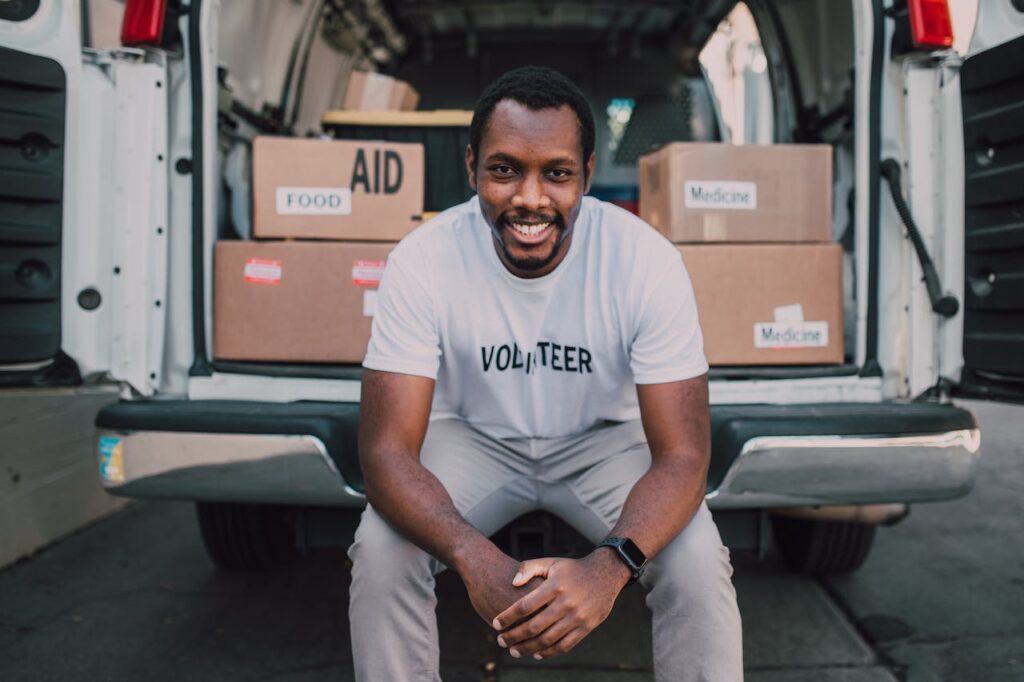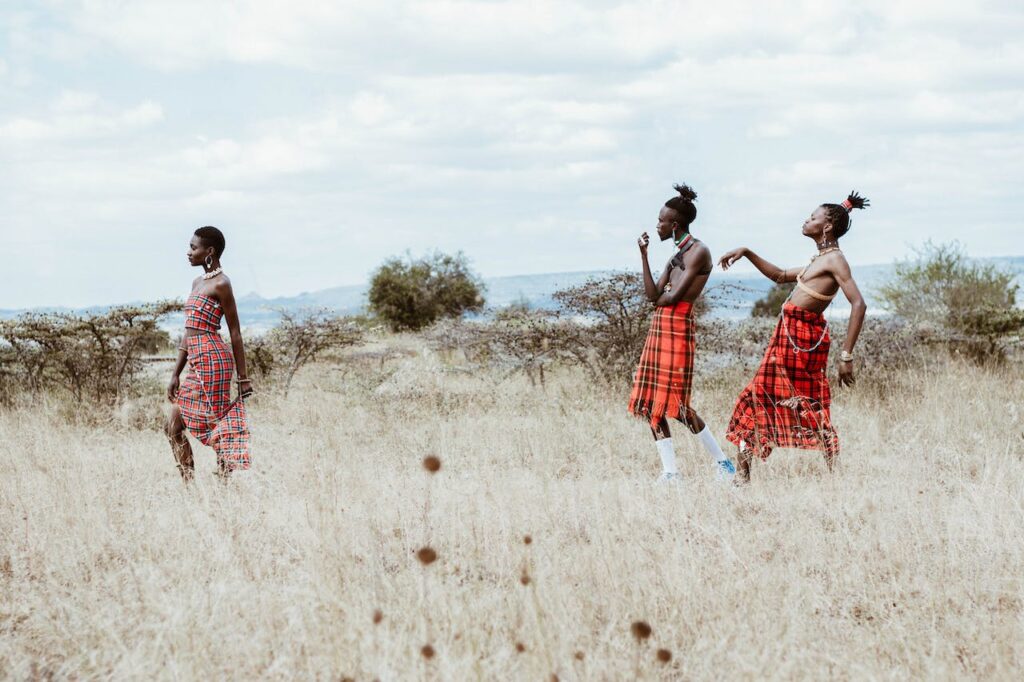Science
The Moon, Jupiter, and a Final Farewell: March Sky Full of Wonders
02 March 2026

“Despite South Africa spending tremendous amounts of money on social benefits, the poor are still poor, and the rich are only getting richer. These imbalances will one day lead to an implosion. Every time I visit South Africa, I see increasing social unrest” – explains Andrzej Polus, PhD, professor at the University of Wrocław and expert on sub-Saharan Africa.
Wojciech Harpula: The vast majority of the South African population had high hopes when apartheid fell in 1994. The abolition of racial segregation was supposed to give the country a new impetus for growth. Meanwhile, today in South Africa, unemployment stands at 35%, and economic inequality is the same as it was under apartheid. What has happened?
Prof. Andrzej Polus: Unemployment among the young is as high as 60%… Among South Africa’s myriad problems, the disparities in terms of income and wealth seem to be the most pressing. Academic discussions on inequality tend to use the Gini coefficient, which is a measure intended to represent the degree of income inequality. A Gini coefficient of 0 reflects perfect equality – all members of the community in question have the same assets.
If the coefficient is 1, then one person has all the wealth, while the rest have absolutely nothing. South Africa’s Gini coefficient for wealth is 0.88. This is the highest value in the world. What’s more, the country’s wealth inequality is increasing, with the ratio standing at 0.8 in 2000. Income disparities are also incredibly substantial, with the Gini coefficient at 0.67. In South Africa, therefore, wealth is concentrated in the hands of a few.
After the fall of apartheid, Nelson Mandela’s government began introducing a whole series of social programs, and the quality of life in the so-called black townships, i.e. settlements inhabited by the black population, improved considerably. Schools were established, water intakes were installed, and water supply and sewerage systems were built. Between 1994 and 2000, a gradual leveling of inequalities became apparent. However, later years saw a renewed widening of wealth and income discrepancies.
The African National Congress (ANC) has ruled South Africa since 1994. In the days of the anti-apartheid struggle, this organization had a strongly leftist, even Marxist view of the economy. How is it possible that the ANC implemented neoliberal economic solutions on its assumption of power?
The fact that Nelson Mandela, who chose socialist Cuba as his first foreign destination upon becoming president, implemented the neoliberal recommendations of the International Monetary Fund may seem fairly perplexing. Yes, the ANC wanted to implement socialism in South Africa, and many of its members also belonged to the Communist Party. However, having seized power from the whites, Congress leaders were left with little choice.
What do you mean exactly?
Why did the National Party, representing South Africa’s white ruling minority, decide to abolish apartheid and hold democratic elections, de facto handing over power to the ANC?

Because a large share of the black population consistently resisted the racist policies of the authorities?
This is true, but above all, the National Party realized that with the fall of the Ian Smith regime in Southern Rhodesia (today’s Zimbabwe) and the end of the Cold War, South Africa would be left to stand alone on the world stage and would be unable to play the card of a capitalist state resisting communism in the Southern African region. South Africa was a sanctioned pariah state on a global scale. Isolated in international politics, it had enormous economic problems and no prospects for growth.
Admittedly, South Africa was still considered an economic powerhouse of sub-Saharan Africa. The regime had the ability to considerably protract its ‘demise’ as the National Party had all the uniformed forces under its control and – as few remember today – it also had nuclear weapons at its disposal. In the 1970s and 1980s, several nuclear warheads were built in South Africa, most likely in collaboration with Israel[1]. When Nelson Mandela came to power, he gave full control of South Africa’s nuclear arsenal to the International Atomic Energy Agency, surrendering all nuclear weapons. The National Party was aware that apartheid policies were unsustainable in a democratizing world.
That is why it released Nelson Mandela from prison in 1990, with the turbulent Kempton Park negotiations, the South African Round Table Talks, beginning a year later. Incidentally, the formula for the deliberations was modeled on the Polish Round Table, and advisers from Poland were present during the negotiations in South Africa. While talks on how to conduct multi-racial elections and introduce a new constitution took place almost in the public sphere, discussions on the future of businessmen operating in South Africa were kept confidential.
The National Party agreed to cede political power but did not agree to any ownership conversions. It was agreed that the so-called mine energy complex, i.e. powerful mining and energy sectors, would remain in white hands, as would the property, insurance and banking. At the same time, both South Africa and the ANC were under pressure from international financial institutions, which sought to enhance a neoliberal approach to the economy. The International Monetary Fund and the World Bank conditioned their approval of loans on the introduction of structural adjustment programs involving free-market reforms. As a result of negotiations and external pressures, South Africa could not choose an economic model other than capitalism.
We recommend:
Even before apartheid ended, the white economic establishment began to introduce the new black elites into the economic system. Selected ANC activists were offered seats on company boards, given shares and allowed to become wealthy. The black beneficiaries of the political transition are referred to as black diamonds in South Africa. One of them is the current South African president Cyril Ramaphosa. He has served on mining boards, owned a McDonald’s franchise in South Africa, and today is one of the richest people in South Africa.
The drawing of prominent anti-racism activists into the economic system, which continues to be dominated by the whites, together with the collapse of the competitive economic system that epitomized the USSR, saw the ANC transform – in 1994-96 – from a left-wing group with radical economic transformation on its agenda to one that began to accept neoliberal reforms.
This situation has resulted in foreign investment and lines of credit on the one hand and the concreting of existing ownership and economic relations on the other. Moreover, the ANC did not have its own staff who could manage the most developed economy in Africa and simply needed specialists and technocrats, who were linked to the former regime, to make the state viable. This method of conducting the political transformation had incredibly momentous implications. South Africa is still experiencing these consequences today.
What are the consequences of the decisions made thirty years ago?
While the struggle against the system of racial segregation was very bloody and, following the assassination of Communist Party leader Chris Hani in 1993, the country practically teetered on the brink of civil war (it can be argued that the political murder perpetrated by Polish émigré Janusz Walus was, paradoxically, the catalyst for change), the 1994 transfer of power went very smoothly, both in terms of the system and symbolism. A new constitution was adopted, and the efforts of the Truth and Reconciliation Commission, chaired by Archbishop Desmond Tutu, allowed the perpetrators to be held to account.
Anyone accused of crimes against the black population could stand before the Commission, admit their guilt, show remorse and return to the community. If, however, someone violated South African law that was binding during apartheid, for example, by torturing black people, the Commission also had the right to sentence them to prison, and several such sentences were indeed handed down. There was a transition to democracy in the political sphere, and reconciliation was achieved in the symbolic sphere. In contrast, no changes were made within the economic layer, and much of the former state apparatus was incorporated into the new ANC-dominated administration.
Those in power under apartheid considered inequality as a given and as something desirable. Furthermore, they treated the state as their property. To a considerable degree, this mentality was then assimilated by the new black elites. The situation was further complicated by the fact that this approach overlapped with the absolute loyalty of ANC members towards the party rather than the state. This misguided loyalty developed during the struggle against apartheid. As a result, a process of kleptocracy began to take root. In South Africa, political capital enables the acquisition of economic capital. Hence, the preying on the state, clientelism and corruption.
The former president Jacob Zuma, who ruled South Africa for nine years, has become the epitome of corruption. One of the causes of his infamy is the shady business he conducted, most prominently, with brothers Atul, Ajay and Rajesh Gupta, businessmen of Indian origin. As a result of systemic political corruption known as state capture, South Africa has lost approximately 10% of its GDP, with US$ 35 billion in misappropriated state funds. Interestingly, Zuma was not jailed for corruption or money laundering but for failing to appear in court. In August 2023, he was pardoned by President Ramaphosa.
Today, one of the biggest problems affecting South Africans is power cuts, which may last up to nine hours a day. The national electricity supplier, ESKOM, was once the largest electricity producer in the region, exporting it to other countries. Today, this state-owned enterprise is unable to meet South Africa’s own electricity demand. How can this be? The answer is simple: Underinvestment. The first reports forecasting the collapse of the energy-supply system in the event that the power units are left unmodernized were published twenty years ago.
And that’s exactly what happened. With the first power station put out of action, the other plants had to increase capacity, which resulted in their overexploitation and outages. With state money disappearing into private pockets, there was no money left to invest in infrastructure, which is a common good. The situation in South Africa is as follows: wealth remains in the hands of a relatively small group of people recruited from the old white elites and the black diamonds incorporated into the system, and those in power use the resources of the state to acquire and further multiply their capital. These circumstances lead to massive inequalities that persist despite the South African state redistributing around 6% of its GDP.
This level of redistribution is enormous and one of the highest in the world. Are these social transfers unsuccessful in redressing inequalities?
South Africa is one of the most redistributive countries in the world. So-called social grants, of which there is an impressive number, are the jewel in the ANC’s crown. Welfare payments add up to an equivalent of 4% of the country’s GDP. The poorest rely on the money paid by the state in order to survive. They are absolutely dependent on them.
How many people are we talking about?
There are 18 million people, or more than 30% of South Africa’s population, who are fully dependent on financial social assistance. Grants have shown themselves to be ineffective, failing to significantly improve the quality of life of the poorest sections of the population. This money is being ‘frittered away’ instead of being used to build capital sufficient to lift people out of poverty. The Black Economic Empowerment governmental policy, which aimed to level the playing field for South Africa’s black population against the economically dominant whites, has also been unsuccessful.
Legal tools favoring the black population were developed, including a rating that assessed businesses in terms of ownership structure. The higher the number of black shareholders or stockholders making up the enterprise, the more likely the company was to receive state contracts. This was supposed to lead to a faster change in the ownership structure of companies and motivate large white-owned companies to sell shares to black-owned companies. The BEE policy proved ineffective, as contracts were given to companies with ‘connections’ to those in power rather than those with real potential for growth. The Black Economic Empowerment program became particularly prone to corruption under the Jacob Zuma government.
Despite South Africa spending tremendous amounts of money on social benefits, the poor are still poor, and the rich are only getting richer. These imbalances will one day lead to an implosion. Every time I visit South Africa, I see increasing social unrest. In July 2021, following the arrest of Jacob Zuma, riots erupted in Gauteng and KwaZulu-Natal provinces. More than 300 people were killed, with losses valued at US$ 3.4 billion. The nation had not seen such widespread violence since the fall of apartheid.
The riots were mostly the work of the Zulu. A civil war between whites and blacks was avoided during the time of political system transformation, and after 1994, between the Zulu and Xhosa, i.e. the two largest black ethnic groups in the country. Today, ethnic tensions are once again becoming more apparent. It is becoming relevant whether a given post is filled by a representative of the Xhosa, Zulu or Sotho people. Managing the expectations of different ethnic groups is yet another challenge that South Africa faces.

Is land reform another problem which looms over the nation? Land in South Africa remains concentrated in white hands.
During the previously mentioned negotiations at Kempton Park, it was agreed that there would be no change to the ownership structure. As a result, almost all of the land in South Africa, with the exception of townships and former Bantustans [territories carved out of South Africa between 1971 and 1981 to house individual groups of black people – editor’s note], belongs to the white population. Land reform is ongoing, but it is highly ineffective.
The state has the pre-emption right to land that someone puts up for sale, but in this way, it mainly acquires unproductive farms and land that someone simply wants to get rid of. Moreover, the government then divides the purchased land among as many beneficiaries as possible. The result is farms that produce only enough resources to meet their own needs. Such farms do not contribute to market turnover, and their owners do not accumulate capital.
In the discussion on land reform, the actions of former Zimbabwean President Robert Mugabe are a crucial point of reference. In 2000, Mugabe confiscated land from more than 4,000 white farmers, redistributing it to veterans of the Rhodesian War. And they simply had no knowledge of farming. They had little idea how to farm the land, how to sell produce, or who to sign contracts with. This has led to Zimbabwe’s economic collapse. The specter of famine hung over the country, once dubbed the “breadbasket” of Africa.
Hyperinflation was rampant, with the state becoming essentially paralyzed. The Economist once described Zimbabwe as ‘the fastest shrinking economy in the history of the world.’ Emmerson Mnangagwa, the Zimbabwean President who ousted Mugabe, is today trying to encourage white farmers to return. Although everyone in South Africa is aware of the dire consequences of taking land away from the white farmers in Zimbabwe, some would still like to see such a scenario enacted. Julius Malema, leader of the Economic Freedom Fighters Movement, is calling for immediate Zimbabwean-style land reform.
Despite the fact that land reform led to Zimbabwe’s economic collapse?
He believes that land should be redistributed to black people even if the consequences are difficult to predict. When Malema is reminded of the disastrous events in Zimbabwe, he replies that white people are so arrogant that they do not allow black people to make mistakes in their own country. Will agricultural production collapse? Perhaps, says Malema, but we have the right to make this mistake as people of this land. According to the EFF’s leader, the seizure of the land from the whites would simply be an act of historical justice. Attendees of party rallies of the Economic Freedom Fighters Movement sing songs from the anti-apartheid era: “Kill the boer, kill the farmer” or “One settler, one bullet” while performing war dances. These are overt calls for violence against the white South African population.
You may also like:
The results of the latest population census, published several weeks ago, point to the declining number of whites in South Africa. Their numbers have dropped to 4.5 million, 2% less than in 2011. During the same period, the population classified as black increased by 20%. White South Africans are leaving for Australia and the UK; some have gone to Georgia. It is not a mass exodus, but the numbers of white South Africans are shrinking. Perhaps one of the reasons for this population decline is the threat of their assets being seized if Malema assumes power. And there are many indications that this could actually happen.
South Africa is to hold general elections in 2024. All polls indicate that the African National Congress will fail to win 50% of the vote. For many years, the ANC has ruled in coalition with the South African Communist Party and the Congress of South African Trade Unions. Recent years have seen the collapse of this coalition. Julius Malema and his Economic Freedom Fighters are being touted as a potential ANC coalition partner after next year’s elections. Implementing their program would have tragic consequences. Agriculture is responsible for only about 5% of South Africa’s GDP.
Even if the black population was given the entire farmland, this would not lift them out of poverty, and instead, it could have disastrous consequences for the country’s economy. This being said, some form of land reform is necessary. A state of affairs in which all the land continues to be in white hands so many years after the end of apartheid is untenable. Land is capital. The return on capital many times exceeds the income that can be obtained from labor. If capital has been the property of the same people for many years, the rich get even richer, and the situation of the poor does not improve. This is why Malema’s radical, populist slogans appeal to a part of the electorate.
White farmers are known to be regularly murdered in South Africa. They accuse the government of tacit consent to these crimes on the part of the administration. Are they right?
The victims of plaasmoorde, which means ‘farm murders’ in Afrikaans, can already be counted in the thousands. I have studied this particular issue. I do not agree that these actions are systemic and that the administration deliberately turns a blind eye to these crimes. Plaasmorde are motivated by robbery. The race factor is not decisive in this case. In simple words, white landowners are murdered because they have money. If a black man was the farmer, he would be vulnerable to assault to the same extent. South African law enforcement apparatus and the justice system are known to function inefficiently – against whites and blacks alike.
Although it would be more apt to say that they do not function at all. Crime is a great scourge. The state is unable to provide its citizens with elementary standards of safety. This year, the official Independence Day celebrations in Cape Town had to be canceled because police felt that officials could be at risk of harm during the event. The security sector has been privatized. There are more private security personnel in South Africa than there are members of the police and military combined. I know of no other country where private armies of bodyguards outnumber the official coercive forces of the state. Since the authorities have virtually withdrawn from preventing crimes, it is hardly surprising that they are taking place. I myself was mugged in South Africa. When I went to the police, the officers were not at all interested in pursuing the perpetrators. They concluded that they wouldn’t find them anyway, so why commence an investigation in the first place?
But back to the farmers: I once conducted field research on the topic of land reform. I visited vineyards, i.e. the most productive sector of South African agriculture. The main problem for white farmers was not the threat of their land being taken away from them, but climate warming and lack of water. Nowhere is climate change in southern Africa more tangible than here. Cape Town is the first global metropolis faced with the possibility of completely running out of water.
Fortunately, rain fell in the end, but the city suffered from extreme water scarcity for a long time. It was an expression of patriotism not to wash your hair, with water rationed in townships. During that time, the white residents of Cape Town continued to fill their pools. The same happens during episodes of load shedding. The black-populated suburbs are drowning in darkness, while the white districts set up diesel-powered generators in front of their homes. This can serve as a very tangible example of wealth inequality.
What is the reason that although South Africa declares neutrality in relation to the war in Ukraine and suggests mediation, it actually consistently supports Russia?
There are several reasons for this. The ANC continues to be sentimental towards the period of cooperation with the USSR. Soviet instructors were present in the training camps of the armed wing of the Congress, the so-called ‘Spear of the Nation.’ Some activists were sent to study in the USSR and spent the better part of their lives in Moscow. Those ruling South Africa today remember that during the struggle against the National Party, the Soviet Union stood by them, funded them, and trained them, all in contrast with the West.
The second factor is that Russia’s narrative is hitting fertile ground in sub-Saharan Africa. Vladimir Putin is seen there as a man who challenges the international order. Russian Foreign Minister Sergey Lavrov has already toured Africa three times during Russia’s war on Ukraine. The main theme of his speeches is: remain neutral because we are not fighting this war against the Ukrainians. We are conducting it because we want a better international order. We have had enough of a world dominated by the West. In the brand-new world order, your position will also be more powerful.
African leaders seem to take heed of this message. At present, Africa’s position in the global economy and politics is not particularly strong. Perhaps in the new balance of power, with China as the dominant force, its situation could improve. From the point of view of African states, it is, therefore, more prudent to remain neutral and wait to see what shape this new world order will take. Thirdly, this war is taking place far away from South Africa. It is not a state dependent on food supplies that are shipped from Black Sea ports to Somalia or Kenya.
Russia’s rhetoric would not be warmly received in African capitals if it did not contain at least some rational arguments. What does Africa accuse the West of doing?
The most serious allegation is the drain on capital. Globalization from an African and South African perspective looks different than from a Western point of view, and its assessment is far more critical. All the available data, including data presented by the UN, show that more capital – in various forms – leaves Africa each year than arrives there. Investment and grants do not offset the resources that Africa is losing. According to Lavrov, Africa was first formally colonized by the West and is currently a victim of economic neocolonialism.
During his visits to Africa, the Russian diplomatic chief repeats time and time again that Russia has never been a colonial empire. Which is not entirely true, as in the late 19th century a New Moscow, i.e. a Cossack settlement, existed for some time on the site of present-day Djibouti. But above all, Russia was a ruthless colonizer in Asia and Europe. I think that our diplomacy could have a lot to say on this topic, reminding African leaders of Russia’s actions towards the peoples of Siberia, the Caucasus or the Poles.

Lavrov’s arguments receive a sympathetic reception in sub-Saharan Africa also because Russia usually gives something to individual countries. These are small things: a pool of scholarships for African students at Russian universities or the writing off of debts dating back to the USSR. This approach is extremely important for Africans and differs from their previous experiences with Western politicians. Russia also does not make demands. In contrast, the representatives of the West generally demanded a myriad of things: democratization, respect for human rights, implementation of specific economic models, improvements in the efficiency of state institutions… They offered help, but at the same time, they had many conditions. Russia cannot offer too much because it does not have the means to do so, but it also has no demands for African governments. For this reason, out of the sub-Saharan African countries, only Kenya has an unequivocally pro-Western stance. The vast majority of nations, including South Africa, are waiting for events to unfold.
Translation: Magdalena Fowler


Truth & Goodness
01 March 2026

Zmień tryb na ciemny